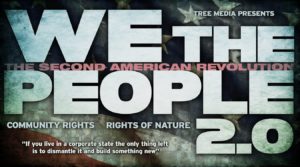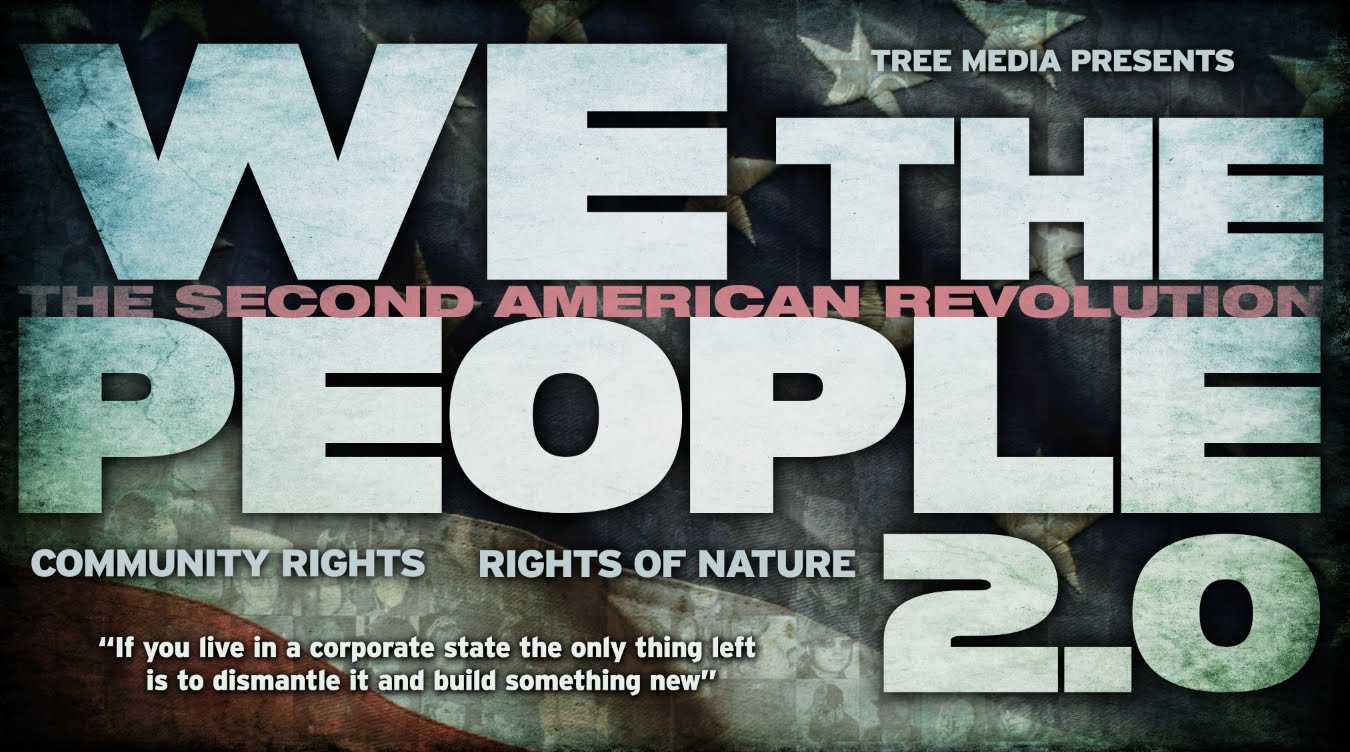In order to protect our environment from messy oil and gas projects, hazardous waste, toxic pollution, and industrial agriculture threatening local farming, a new iteration of democracy is necessary. At least, that is the argument put forth in “We the People 2.0,” a 2016 documentary produced by Tree Media.
This compelling film starts off by highlighting multiple American communities that had been struggling to fight back against projects that were causing serious damage to their local environment. In Licking Township, Pennsylvania, for example, strip mining has irrevocably altered the landscape and caused dead streams.

Release Year: 2016
Running Time: 91 min
Director: Leila Conners
Watch the trailer
Meanwhile, in Willmington, California, an oil refinery operates immediately adjacent to a residential neighborhood, where everything is coated with a thin layer of ash and soot from the constant burning.
Some of the most striking images from the film come from Broadview Heights, Ohio, where there are ninety oil wells in thirteen square miles, many of them in people’s backyards, by churches, and even next to schools.
In one incident, oil spilled onto an elementary school playground.
This inability of communities to prevent environmental damage or to hold corporate entities accountable for the environmental damage they cause is due to our current environmental regulatory system, according to organizers from the Community Environmental Legal Defense Fund (CELDF).
Featured prominently throughout the documentary, they argue the regulatory system functions simply to regulate the rate of destruction of the environment, not to prevent destruction, as most would hope.
For example, in the United States regulatory system, the burden is on the individual or community to show how a corporation is violating regulations of an existing permit; the burden is not on the corporation to prove that they are in compliance with a permit. Community activists are essentially “boxed in” by four things:
- State and federal preemption;
- Dillon’s Rule, which is that local jurisdictions only have the power to make laws that the state or federal government explicitly allow them to;
- the Commerce Clause; and
- corporate personhood.
As stated by one of the CELDF organizers, what is happening is “not an oil and gas problem, it’s a democracy problem.”
The best way out of this box, proposed by CELDF and with a growing record of success in communities throughout the country, is “rights-based” legislation: creating true, local democracy.
Some of the communities profiled have passed laws for either a Community Bill of Rights, or ordinances asserting the Rights of Nature. Through these laws, decision-making about local projects are brought back to the local level.
In Broadview Heights, Ohio, when residents started complaining to the City Council, the Council claimed there was nothing they could do.
Ohio House Bill 278 prohibits localities within the state from limiting oil and gas production; all decisions are made by the state regulatory body often stacked with members connected to the very industry they are tasked with regulating.
However, since Broadview Heights passed a Rights of Nature ordinance in 2012, the installation of new oil wells has been prevented.
While the film ends with a hopeful tone about the progress being made through rights-based organizing at the local level, it does not address questions about potentially undesirable and inevitable side effects.
For instance, if the goal is “true, local self-government,” what effects would achieving that have on the efficacy of state and national government? How could equal protection, guaranteed by the federal government, be safeguarded if each city can make their own laws outside of the current state and federal legal systems?
If we can’t answer these questions, we’ll be dealing with a potentially bigger governance problem than we started with.

